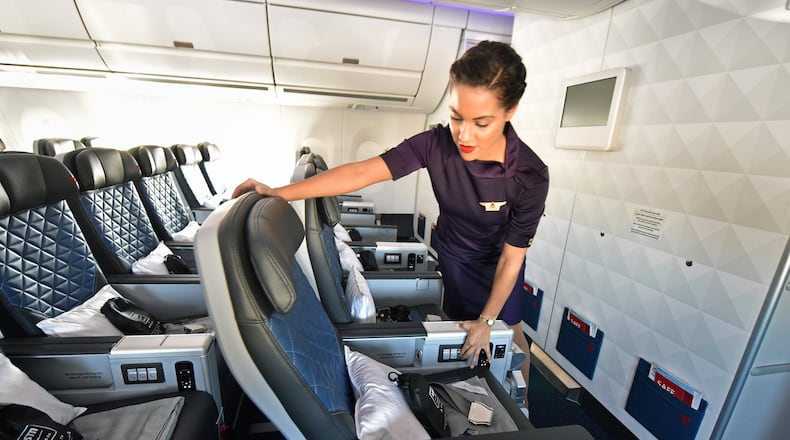Delta Air Lines is giving its flight attendants and ground employees a 5% raise, and boosting starting pay to at least $19 an hour for much of its workforce.
It’s the third year in a row that Atlanta-based Delta has raised pay since recovering from the worst effects of the COVID-19 pandemic. Delta granted workers 4% raises in 2022 and 5% raises in 2023.
The airline is increasing pay for flight attendants, baggage handlers, mechanics and cargo employees, as labor unions target those groups for organizing. The raises will also go to other frontline employees, including in airport customer service and reservations.
Delta is giving out the raises effective June 1 even as it faces pressure from rising costs that have prompted it to lay off some corporate staff.
“Investing in our employees is really the most important thing that we do in order to make sure we’re delivering the best service for our customers,” said Kelley Elliott, Delta’s vice president of total rewards who handles compensation and benefits, in an interview with The Atlanta Journal-Constitution. The raises will cost the company about $500 million on an annual basis, she said.
Delta also paid $1.4 billion in profit sharing to employees on Valentine’s Day, after reporting a $4.6 billion profit for 2023.
Airlines have hiked pay in recent years to help attract and retain workers. The industry saw waves of early retirements and departures amid the pandemic and then struggled to fill needed roles when demand for travel surged.
In addition to the raises for frontline workers, Elliott said employees at its headquarters and in other administrative or management positions will get raises from a 5% “merit pool,” getting individual raises ranging from about 3% to 7%.
Overall, a total of about 80,000 employees will get raises. That doesn’t include pilots, who are the only major unionized group at Delta and get raises through their contract. Delta has a total of about 100,000 employees.
The new minimum starting pay of $19 an hour, up from $16.55 an hour, applies to Delta’s U.S. mainline employees. It does not apply to those working for its Delta Connection regional jet operations or in other countries.
The Association of Flight Attendants (AFA) union, which has been trying for years to unionize Delta flight attendants, said on its website for the Delta organizing campaign: “A raise in hourly rates is no comparison with a total compensation package in a contract.”
Elliott said Delta management is “very aware, of course, of the activity around the industry and at Delta.” But, she said: “We made these decisions really to be the best for our people, and for the business.”
AFA said unionized flight attendants earn more sick time, vacation pay and direct contributions for retirement, and pay less for better health insurance.
But Delta CEO Ed Bastian in a memo to employees on Monday wrote: “With this increase in base pay and starting rates, we continue our commitment to provide Delta people with industry-leading total compensation for industry-leading performance.”
This article has been updated with Kelley Elliott’s title as Delta’s vice president of total rewards.
About the Author
Keep Reading
The Latest
Featured



